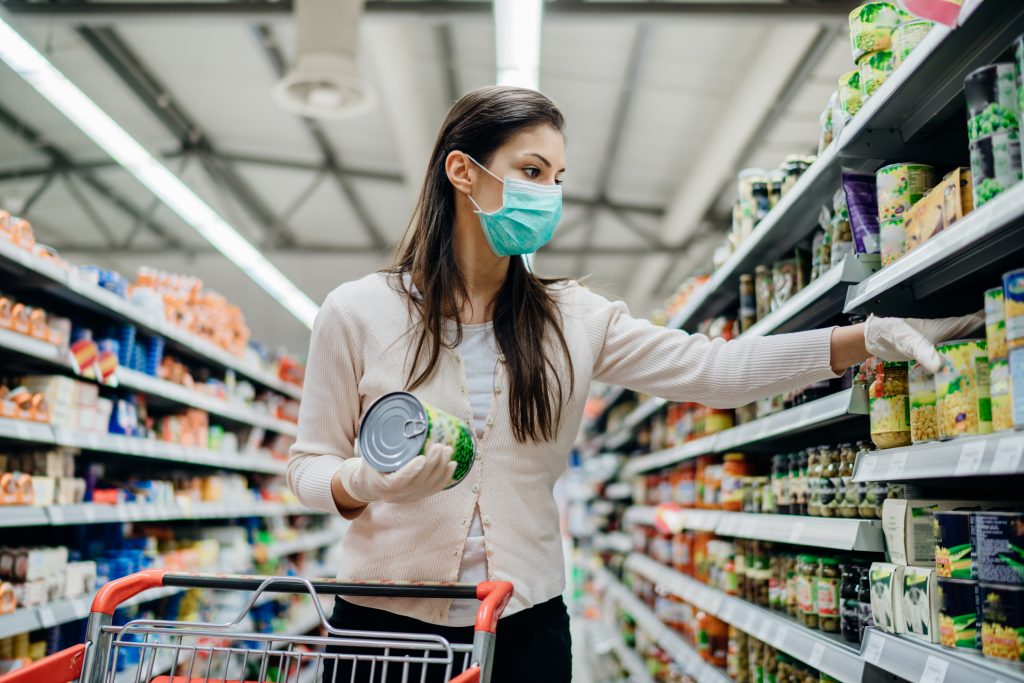COVID-19 grocery shopping tips for patients

Even as we are following social distancing guidelines and orders to stay at home, it still becomes necessary occasionally to make a trip to the grocery store. Many people have questions about what to do while shopping and after arriving home with the groceries to make sure they stay safe and healthy. COVID-19 grocery shopping tips for patients can alleviate some concerns during these challenging times.
Dr. Jeffrey VanWingen, an independent family medicine physician in Michigan, has offered some very important tips on applying medical sterilization techniques to grocery and takeout food via an informational video. Dr. VanWingen advises his viewers to think of their groceries as being covered with glitter. The goal when you arrive home is to not have any glitter on your groceries, your hands, or especially your face. Then imagine that disinfectants and soaps have the power to get rid of all the glitter.
Dr. VanWingen offers the following tips for grocery shopping:
- Wipe down the cart
- Commit to buying items before picking them up
- Don’t go to the store if you have respiratory problems
- Don’t go to the store if you have been exposed to the coronavirus
- Make a plan ahead of time and buy enough to last for two weeks
When you bring your groceries home:
- Sanitize the table or counter where you will place them
- Place your groceries on half the counter or table, keeping the other half clean and sanitized
- As you clean each item, place it on the sanitized side of the table
- Wipe down the outside of plastic and glass items
- Discard any unnecessary cardboard packaging
- Move items such as bread, wrapped in plastic, to appropriate and clean storage containers
- Wash fruit thoroughly
- Take cloth, reusable grocery bags outside after unloading
- Discard plastic bags that you brought home from the store.
If you decide to use a shopping service, don’t let them come into your home when they deliver. Have them leave the groceries outside instead so you can bring them and follow the sanitizing guidelines. As Dr. VanWingen emphasizes, “safety out in the marketplace can literally save lives.”
These tips are important for your safety while you are shopping and when you bring your groceries home, since you can acquire the coronavirus through the air and after touching contaminated objects. Researchers have found that COVID-19 can remain on surfaces for several hours to several days, depending on the type. The virus is detectable up to:
- Three hours in aerosols
- Four hours on copper
- 24 hours on cardboard
- Two to three days on plastic and stainless steel.
Following Dr. VanWingen’s sterilization techniques can be a significant factor in your health and safety. As James Lloyd-Smith, co-author of the study that supports guidance from public health professionals to slow the spread of COVID-19, and a UCLA professor of ecology and evolutionary biology stated, “If you’re touching items that someone else has recently handled, be aware they could be contaminated and wash your hands.”
